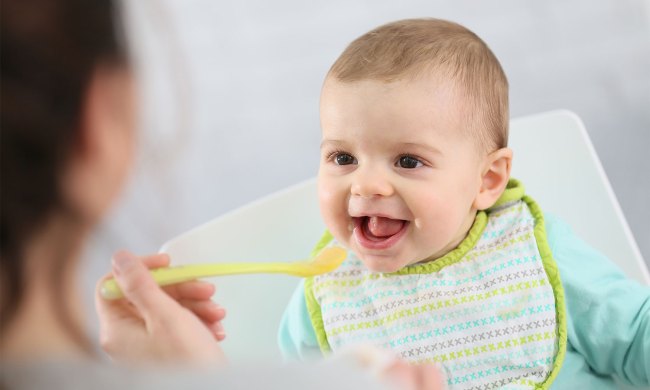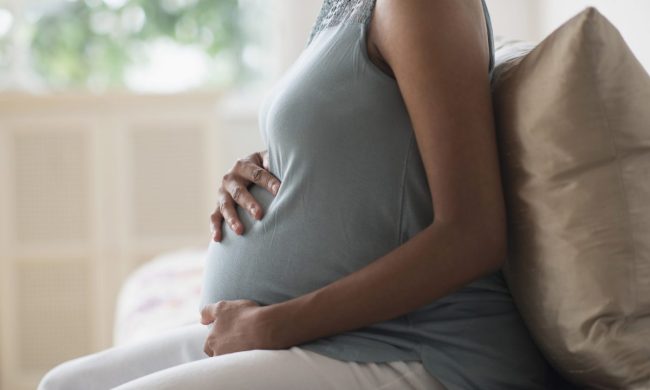Having a baby doesn’t just take a physical toll on a body but a mental toll as well. In the days and weeks following childbirth, it is normal to experience a roller coaster of emotions, including sadness. Your body undergoes significant physical changes post-birth, and at the same time, you go through the psychological transformation of becoming a parent.
Feeling overwhelmed and anxious during this time is commonly referred to as “the baby blues,” and they are both normal and expected. Postpartum depression, however, is a different diagnosis and a more serious condition — one you shouldn’t try to treat by yourself. There is a fair amount of overlap in symptoms, so it can be confusing to figure out which diagnosis fits your situation. So, how do you know if you’re experiencing postpartum depression vs. baby blues?
What is the difference between postpartum and peripartum

You may often see postpartum depression also referred to as peripartum depression, so it is important to understand the difference between the two. Postpartum refers to the time after a person has given birth, while peripartum includes the time before the baby is born, while you are still pregnant.
According to the National Institute of Mental Health, half of major depressive disorders “actually begin before delivery or postpartum,” therefore, all these depressive episodes are referred to collectively as peripartum depression. If you are wondering whether what you’re feeling is the baby blues versus depression, here’s what to consider;
Timing
The baby blues usually appear two or three days after giving birth and last for up to two weeks, according to a guide published by the Mayo Clinic. During the first twenty-four hours after birth, your estrogen and progesterone levels, which are extremely elevated during pregnancy, rapidly return to normal. This commonly triggers mood swings. Postpartum or peripartum depression can begin before delivery or any time in the first year following childbirth. If your emotional issues are still present two weeks after birth, it’s a good indication that you should check in with a healthcare provider.
Intensity
If you’re experiencing the baby blues, it’s common to feel sad, overwhelmed, or anxious, and to have episodes of crying, trouble sleeping, difficulty focusing, or poor appetite. Depression can cause these same symptoms, but they are likely to be more intense and may include difficulty bonding with your baby, withdrawal from family and friends, loss of interest in activities that you used to enjoy, thoughts of worthlessness or hopelessness, and even thoughts of harming yourself or your baby.
If you have thoughts of hurting your baby or committing suicide, it is essential to enlist a partner or loved one to care for your infant as you get immediate medical attention by contacting your provider, calling 911, or heading to the emergency room.
Duration
While the baby blues generally fade a couple of weeks after birth, peripartum depression can continue for months, or even longer. If your mood swings, sadness, or anxiety extend beyond those first two weeks with your baby, it’s time to check in with your healthcare provider about your mental health.
Postpartum psychosis

The MGH Center for Women’s Mental Health notes that a staggering 85% of women experience some sort of mood disturbance during the postpartum period. Many of those women are experiencing baby blues or postpartum depression, but approximately 1 or 2 in 1,000, will experience postpartum psychosis. This typically presents within two to three days after delivery, and can often appear as a manic episode.
MGH states that “restlessness, irritability, and insomnia” are the first symptoms and that women with this disorder exhibit “a rapidly shifting depressed or elated mood, disorientation or confusion, and erratic or disorganized behavior.” Immediate care is necessary in these cases as the infant can be at risk if a mother is experiencing postpartum psychosis.
Childbirth isn’t required

Although crashing hormone levels can trigger sadness and anxiety and may contribute to the onset of depression, you can develop peripartum depression even if you were not the person who gave birth. Adoptive parents, fathers, and non-gestational parents can also become depressed after the arrival of a child, and they should be on the lookout for the same symptoms that a birthing person would experience.
Risk factors

While any parent can experience peripartum depression with the arrival of a new child, people with a personal or family history of depression (peripartum or otherwise) or other mood disorders are at increased risk. Other challenges, from financial or relationship stress to trouble breastfeeding or a lack of support, can also increase a person’s risk of developing peripartum depression. Whether any of these risk factors apply to you or not, it’s a good idea to watch out for symptoms of depression during and after your pregnancy.
Prevention

Whether you’re dealing with a simple case of baby blues that will resolve on its own or a major depressive episode that requires therapy or medication, make sure you communicate with your healthcare provider about how you are feeling during and after your pregnancy.
If possible, line up support for the weeks following birth to help you eat, sleep, and otherwise meet your own needs. Becoming a parent is a monumental transition, and while it’s easy to fill your days taking care of your new child, healthy parenting includes taking care of yourself and asking for help when you need it.




